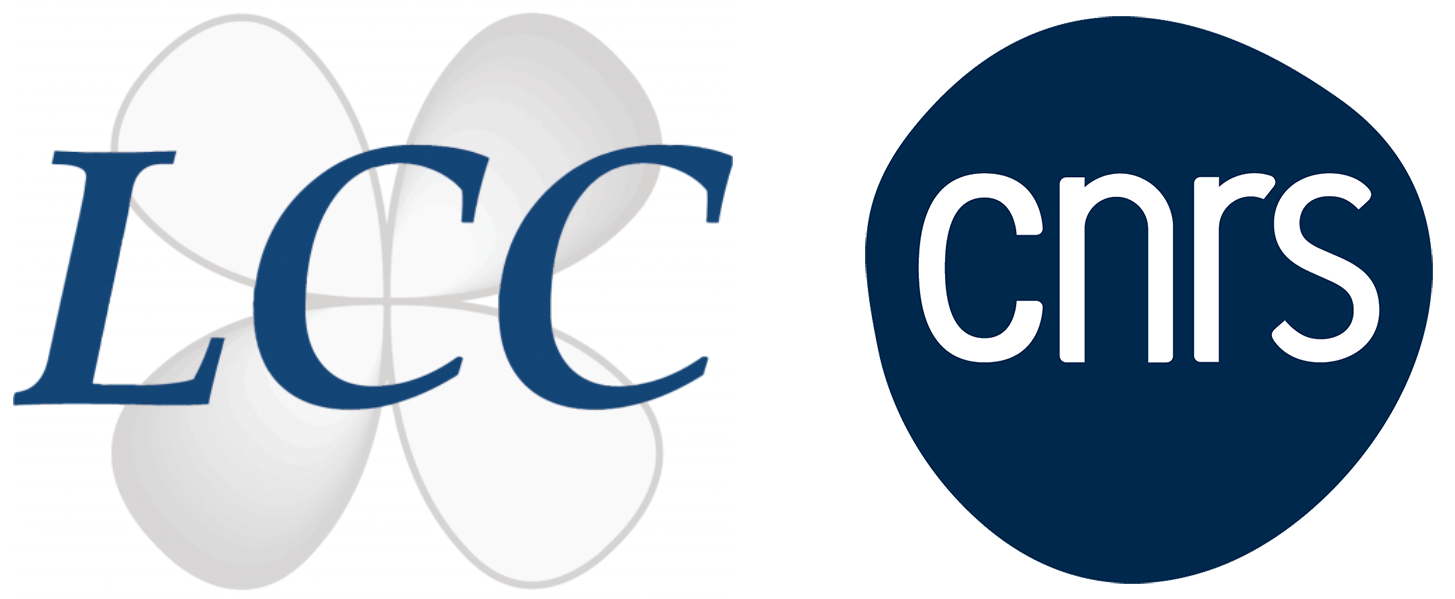LCC
Principal investigator: C. Esmieu/C. Hureau
Three main strategies are under focus. The first one is centered on the design of chelating compounds able to remove Cu from the amyloid-β. Various strategies are investigated: chelation of Cu(I) or/and Cu(II), impact of Zn(II) in Cu extraction from amyloid-β by chelators, importance of kinetics in Cu detoxification process, traceable chelation, use of metallated pro-drug as less-toxic surrogate of the chelators, chelation with additional abilities: artificial secretase, modulators of the assembly…
The second one relies on the use of natural and artificial chaperones, id est (bio-)molecules able to modulate the amyloid-β assembly process. Artificial chaperones include Re–based compounds, polyoxometallates, porphyrines, or Ln-complexes.
The third one aims at designing and investigating new (in vitro and in vivo) imaging tools to monitor the assembly process of the amyloid-β peptide and of other amyloid-forming peptides.
LCC
Laboratoire de chimie de coordination du CNRS
205 route de Narbonne, BP 44099
31077 Toulouse cedex 4
France




